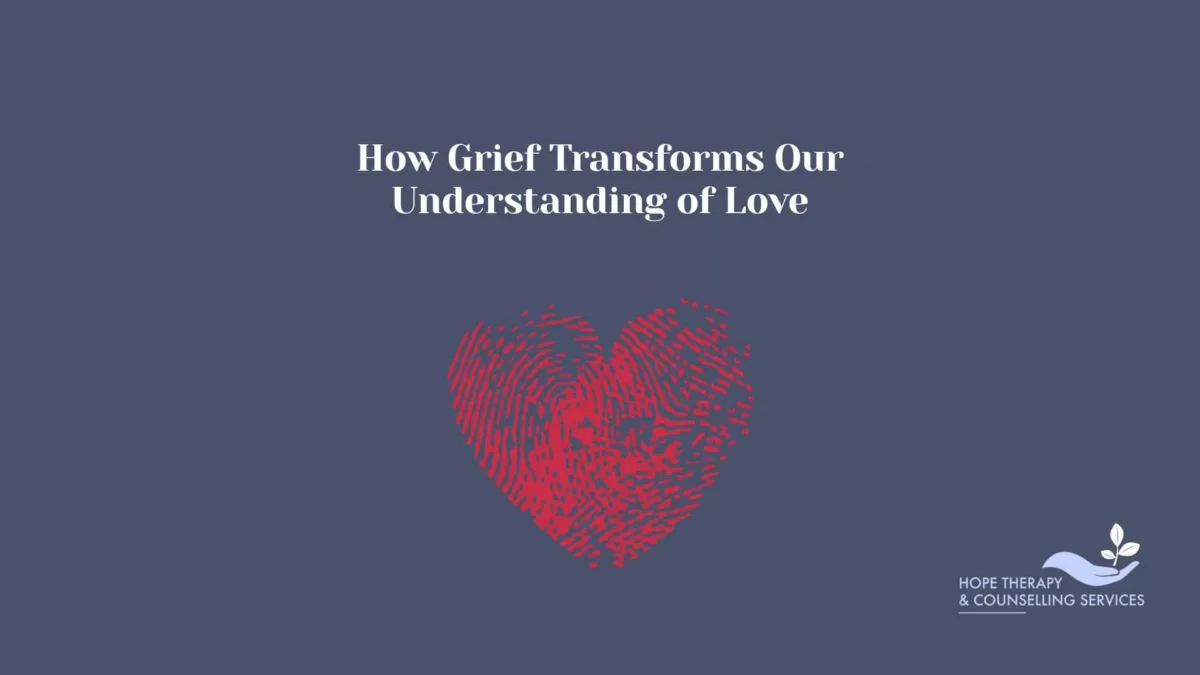Grief is often seen as the heavy, painful feeling that follows loss — the emptiness, the tears, the heartache. But grief is so much more than just sorrow. It’s a profound journey that reshapes how we understand love itself.
Whether you’ve lost a partner, a family member, a friend, or even a relationship with yourself, grief carries the power to deepen, transform, and expand your capacity to love.
In this article, we explore the transformative nature of grief, how it teaches us about love’s complexity, and how you can navigate your own experience with hope and healing.
What Is Grief?
Grief is the natural response to loss, a deeply personal and unique experience. It’s not just sadness — it can include anger, confusion, guilt, relief, loneliness, and even moments of peace.
Every person’s grief looks different and unfolds at its own pace. There’s no “right” way to grieve, no fixed timeline, and no guaranteed destination.
How Grief and Love Are Intertwined
At its core, grief exists because love existed first. The depth of your grief often reflects the depth of your love. When you lose someone or something meaningful, you’re mourning what was cherished.
Grief teaches us that love is:
- Enduring: Love doesn’t disappear with loss. It lives on in memories, in the ways that person shaped us, and in the continued bond we carry.
- Complex: Love can be joyful and painful at the same time. You may feel gratitude for having loved and sadness for losing.
- Transformative: Grief challenges us to find new ways to hold love, sometimes changing how we express or receive it.
- Expansive: As we grieve, our hearts can grow more compassionate, more aware of the fragility and preciousness of life.
The Transformative Stages of Grief and Love
While grief is not linear, it often follows patterns that help us process loss and evolve our understanding of love:
1. Shock and Denial
At first, loss can feel unreal, like a cruel mistake. Denial protects us from feeling the full weight too soon.
In this stage, love might feel frozen — paused in disbelief or numbness. It’s a survival mechanism that gives you time to adjust.
2. Anger and Bargaining
As the reality sinks in, feelings of anger may surface. Why did this happen? It’s common to ask “What if?” or “If only…”
Love here wrestles with confusion and frustration. It’s a reminder that love involves vulnerability and risk, and the pain is part of that.
3. Deep Sadness and Reflection
This stage brings a profound sadness and often isolation. It’s where you begin to truly feel the absence.
Love becomes raw and honest. You may reflect on the relationship — its joys, regrets, lessons. This reflection can open space for forgiveness and acceptance.
4. Acceptance and Integration
With time, many find a way to integrate the loss into their life story. The pain softens but doesn’t vanish.
Love shifts here — it becomes less about clinging and more about holding space for what was. You may find comfort in rituals, memories, or new ways of honouring the person or relationship.
How Grief Expands Our Capacity to Love
Though it may feel paradoxical, grief often expands our ability to love:
- Greater empathy: Experiencing grief helps us understand others’ pain, deepening our connections.
- Increased appreciation: Loss highlights the preciousness of the present moment and the people in our lives.
- New priorities: Grief can realign your values, focusing on what truly matters.
- Strengthened resilience: Surviving grief builds inner strength and a deeper trust in your capacity to heal.
- Spiritual growth: For many, grief leads to profound questions about meaning, life, and connection beyond the physical world.
Navigating Your Grief with Compassion
If you’re in the midst of grief, it’s important to:
- Allow yourself to feel: Avoiding or suppressing emotions can prolong pain.
- Seek support: Trusted friends, support groups, or professional counselling can provide safe spaces to share your story.
- Practice self-care: Nourish your body and mind with rest, nutrition, and gentle movement.
- Be patient: Healing isn’t linear. Some days will be harder than others.
- Find meaning: This might be through creative expression, spiritual practices, or acts of kindness in honour of your loss.
How Counselling Can Support You Through Grief
At Hopeful Minds Counselling Services, we understand that grief is deeply personal. Our counsellors provide:
🌸 Compassionate listening without judgment
🌸 Help to process complex emotions
🌸 Tools to cope with triggers and anniversaries
🌸 Support in finding meaning and hope beyond loss
You don’t have to navigate grief alone. Counselling offers a safe space to explore your unique experience and find a way forward.
You Are Not Alone in Your Grief
Remember, grief is a journey that no one “gets over” but learns to live with. It changes us, but it doesn’t have to break us. Through grief, your heart’s capacity to love remains—sometimes stronger, sometimes quieter, but always present.
You are held, and you are seen.
Ready to find support on your grief journey?
Book a free consultation with Hopeful Minds and take the first step toward healing.
FAQs
Q: How long does grief last?
Grief is unique to each person. It can last months, years, or a lifetime, but the intensity usually changes over time.
Q: Can grief cause physical symptoms?
Yes. Grief can affect sleep, appetite, energy levels, and even cause physical pain or illness.
Q: Is it normal to feel moments of happiness while grieving?
Absolutely. Experiencing joy or relief during grief is normal and does not mean you care any less.

